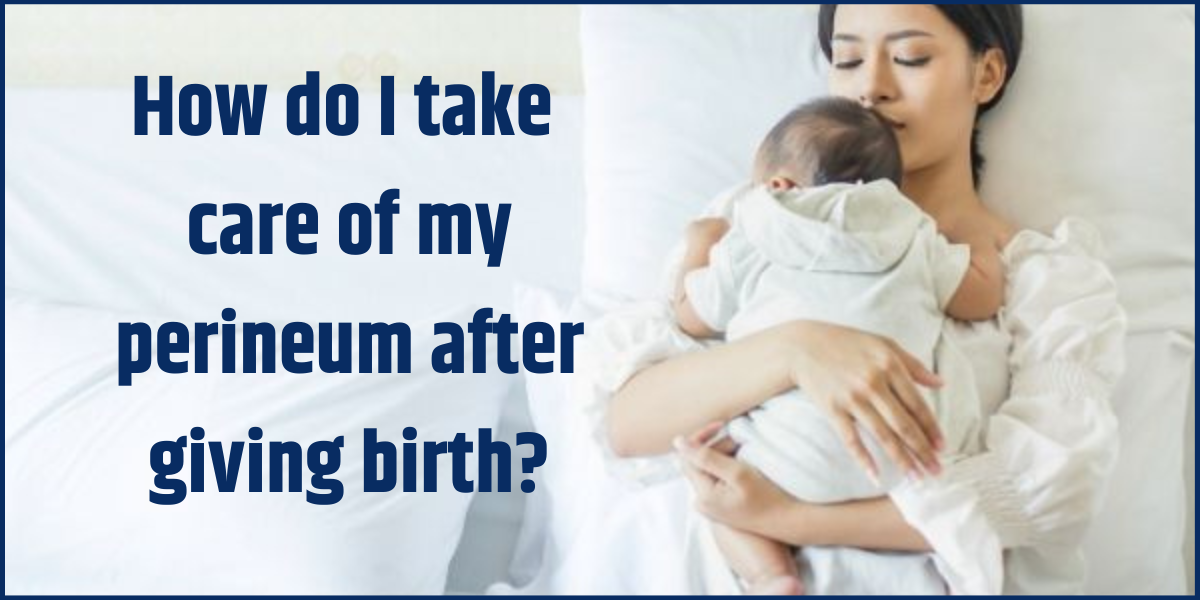How do I take care of my perineum after giving birth?
When a baby is born, the skin between the vagina and the back passage (anus) stretches to make space. This area is called the perineum. Sometimes, during vaginal childbirth, the perineum may tear or get grazed. For most women, these tears or grazes are small and heal quickly.
After childbirth, it’s important to seek care from the best gynecologist hospitals in Lucknow, such as Vidhya Hospitals and Trauma Centre. They specialize in treating postpartum issues, including tears or grazes that can cause discomfort, especially during urination. To alleviate the pain, consider pouring warm water over the perineum while urinating or sitting in a shallow bath of warm water. Leaning forward during urination can help minimize contact with the sore area, providing relief.
Caring for Your Perineum After Giving Birth
Ice Packs:
After delivery, you may experience swelling and discomfort in the perineal area. Applying ice packs wrapped in a cloth can help reduce swelling and provide relief. Remember to use ice in short intervals to avoid freezing the delicate skin.
Sitz Baths:
Sitz baths are warm water baths that can help soothe soreness and promote healing. Fill a shallow basin with warm water and sit in it for about 15-20 minutes a few times a day. Adding ingredients like Epsom salts or witch hazel can enhance the healing process.
Keep the area clean:
Maintaining good perineal hygiene is crucial for preventing infections. After using the bathroom, make sure to gently pat the area dry rather than wiping to avoid irritation. You can also use a peri-bottle filled with warm water to cleanse the area.
Kegel Exercises:
Pelvic floor exercises, known as Kegels, can help strengthen the muscles around the perineum, promoting faster healing and preventing urinary incontinence. Squeeze the muscles around your vagina and anus as if you’re stopping the flow of urine, hold for a few seconds, and then release. Repeat several times throughout the day.
Pain Management:
If you’re experiencing discomfort, your healthcare provider may prescribe pain relievers or recommend over-the-counter medications to help manage the pain. Make sure to follow their guidance and dosage instructions.
Rest and Elevate:
Rest is crucial for your body to heal after childbirth. Aim to take it easy, avoid strenuous activities, and elevate your legs to reduce swelling in the perineal area. Allow your body the time it needs to recover fully.
Consult your healthcare provider:
If you notice any signs of infection, such as increased pain, redness, or discharge from the perineum, make sure to contact your gynecologist immediately. Prompt treatment can prevent complications and promote faster healing.
When Should You See a Doctor for Post-Partum Perineal Problems?
If you have recently delivered a baby, call your doctor if any of the following symptoms occur:
Bad-smelling discharge from your vagina
Burning pain with urination
Passing urine more frequently than usual
Urge to pass urine frequently, but only a small amount
Vaginal bleeding, like spotting
Severe pain in your perineum, pelvis, or lower abdomen
High fever when you are not sick otherwise
Passing gas or stool through the vagina
Passing sutures or sponges
Blistering or herpes outbreaks
If you have recently delivered a baby, go to the hospital if any of the following symptoms occur:
High fever
Nausea and vomiting
Severe abdominal or pelvic pain
Conclusion:
Proper care of the perineum after giving birth is crucial for promoting healing and preventing complications. Seeking care from the best multispecialty hospital in Lucknow, such as Vidhya Hospitals and Trauma Centre, is essential for addressing postpartum issues effectively. Utilizing techniques such as ice packs, sitz baths, and maintaining good hygiene can help alleviate discomfort and promote faster healing. Incorporating pelvic floor exercises, managing pain with appropriate medications, and allowing ample rest are vital steps in the recovery process.



